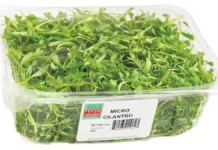
Article contributed by Francine L. Shaw
There have been multiple foodborne illness outbreaks over the past few months, and each one has been serious, frightening and damaging:
- More than 130,000 pounds of ground beef was recalled, due to possible E.coli contamination.
- Chicken contaminated with Salmonella just sickened 92 people in 29 states
- Chipotle was in the hot seat again for a food safety outbreak at an Ohio location, which sickened 700+ people, and was caused by foods not being held at proper temperatures.
- McDonald’s had two separate food safety issues recently. First, nearly 300 people were sickened in what’s believed to be a case of norovirus at a McDonalds in Brevard, NC. Secondly, an additional 400 people – across 16 states – became ill after eating McDonald’s salads, which were contaminated with the Cyclospora parasite.
- Romaine lettuce contaminated with E.coli was widely distributed, sickening – and even killing – consumers.
As a food safety expert, I can tell you that foodborne illness incidents are 100% preventable, and could be avoided if food businesses adopted a food safety culture. An important first step is to educate your team members about food safety, and explain why it’s critical to practice proper food safety protocols all the time. All food businesses should get their employees to care about keeping our country’s customers, foods, and businesses safer and healthier.
Foodborne illnesses sicken 48 million people, hospitalize 5,000, and kill 3,000 in the U.S. annually, according to the CDC.
Given the recent headlines, statistics, and social media buzz around foodborne illness, it’s no surprise that this has become a widespread, serious problem. The good news is that it’s a solvable problem, if food businesses provide ongoing education/training and implement proper food safety protocols. Additionally, food businesses must connect with their employees about the importance of food safety protocols and get them to understand the need for due diligence – every day, with every shift.
 To create a food safety culture for your team:
To create a food safety culture for your team:
- Start at the top. Ensure that company leaders are setting a good example for employees to follow. When food safety culture starts with buy-in from leadership, employees understand that food safety is a priority, and are more likely to take it seriously.
- Explain why. It’s not enough to tell employees that they need to do specific things in the name of food safety (e.g., not cut raw poultry on the same board as ready-to-eat foods, take the internal temperatures of foods, etc.) Explain why it’s so important to follow each protocol so they understand the reasoning behind the rules.
- Provide ongoing food safety training. Food safety training and education should be an ongoing effort. Train all employees, emphasizing why food safety is a huge priority for your organization. Provide continuous updates and refresher courses to keep food safety “rules” top-of-mind.
- Conduct in-person training sessions. I recommend in-person trainings with a food safety expert – at least initially. Face-to-face interactions can help engage employees, emphasize key points, and create a more memorable learning experience. Online training is helpful for refreshers and reminders throughout the year.
- Go digital. Many of your employees are likely millennials, who are always on their phones. Therefore, offer digital tools that make food safety trainings, inspections, QA and other processes easy and convenient for your employees to adopt and embrace. New apps (like the ones from CoInspect) allow you to send alerts and reminders about food safety protocols (like at the start of each shift), and provide streamlined tools (such as digital inspection checklists) that help increase accuracy and compliance.
- Insist that your employees conduct self-inspections. Have systems in place for regular inspections and self-audits. Task multiple employees with this important assignment so you’ll have multiple sets of eyes looking for potential problems. Utilize checklists (I recommend digital checklists) to make sure nothing gets overlooked. These self-inspections should confirm that all staff members are complying with proper food safety protocols. Address and solve potential problems as soon as they’re noticed.
- Hire a third-party food safety expert. It’s invaluable to have an objective, third-party expert inspect your facilities at regular intervals, provide food safety training, and ensure that all food safety protocols are being followed. Objective experts can see things that your internal team may have missed, and can often spot problems before they become liabilities.
- Provide the proper equipment. Stock your commercial kitchen with the necessary tools to safely prepare and serve food, making it as easy as possible for all employees to comply with proper food safety protocols. For instance, ensure there are calibrated food thermometers at every work station so employees can easily (and regularly) check the temperatures of the foods they’re preparing.
- Don’t allow employees to work when ill. Norovirus is a highly contagious illness that can be spread easily and quickly. If employees are vomiting or have diarrhea, they should not work. No exceptions – even if you’re busy and short-staffed. There have been multiple examples of norovirus quickly sickening hundreds of people or more – at a Boston-area Chipotle, on cruise ships, at universities, and even at the Olympic Village.
- Avoid careless mistakes. Employees should know that even seemingly “minor” mistakes could sicken (or even kill) guests. Careless mistakes could include: using the same bowl to beat raw eggs and then prep a salad, serving a nut-allergic guest pesto made with walnuts, “forgetting” to return cold foods to the refrigerator in a timely manner, and failing to cook meats to the proper temperature (an error that caused a massive foodborne illness crisis for Jack in the Box years ago).
- Wash your freaking hands. Insist on proper and regular handwashing – before every shift, after using the restroom or emptying trash, after touching raw food, money, cellphones, doorknobs, menus, etc. Ensure there are easily accessible handwashing sinks, plus plenty of soap, hot water and single use towels.
Food safety is not a “choice” – it’s a necessity. Many employees don’t understand the importance of following proper food safety protocols all the time, so companies’ leaders must demonstrate that food safety is a non-negotiable priority. Create a food safety culture, explain why it’s so critical, and ensure that every employee is on board and cares about this effort. Foodborne illnesses are preventable, but we must all work together to prevent and reduce them.
Francine L. Shaw is President of Savvy Food Safety, Inc. which offers a robust roster of services, including consulting, food safety education, food safety inspections, crisis management training, writing norovirus policies for employees, writing norovirus clean-up procedures, curriculum development, responsible alcohol service training, and more. The Savvy Food Safety team has more than 100 combined years of industry experience in restaurants, casinos, and convenience stores and has helped numerous clients prevent foodborne illnesses. Francine has been featured as a food safety expert in numerous media outlets, including the Dr. Oz Show, the Huffington Post, iHeartRadio, Food Safety News, Food Management Magazine and Food Service Consultants Society International.























